Providence Healthcare pitches in to create surge capacity and new transitional care beds
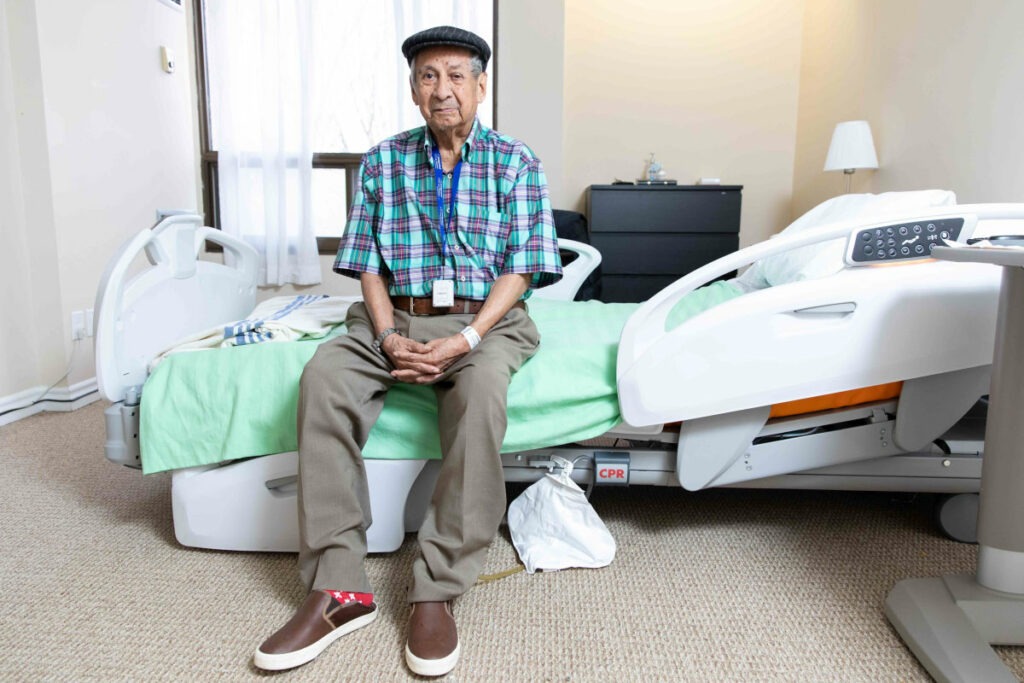
Carlos Manuel Jaime is one of the patients who was admitted to one of the new transitional care beds opened by Providence Healthcare and BayShore HealthCare at the Weston Gardens Retirement Residence in Toronto.
Amid the height of the Omicron wave as Ontario hospitals faced capacity pressure, Providence Healthcare, the rehabilitation hospital of Unity Health Toronto, supported the system by accepting additional patients from across the Greater Toronto Area and opening new transitional care beds for patients in need.
In addition to adding 14 extra beds in its units, Providence worked with Bayshore HealthCare, a national home and community care provider, to secure provincial funding for an additional 27 transitional care beds. These new beds, located at the Weston Gardens Retirement Residence in North York, are for patients who no longer need to be in a hospital, but still require support until they can find a place in long term care.
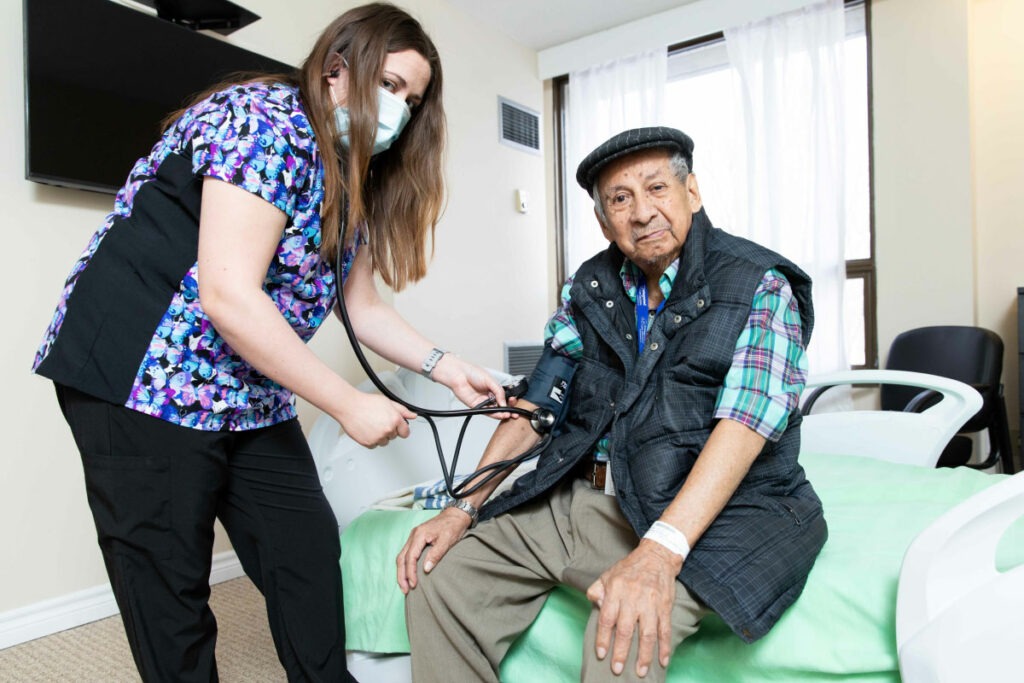
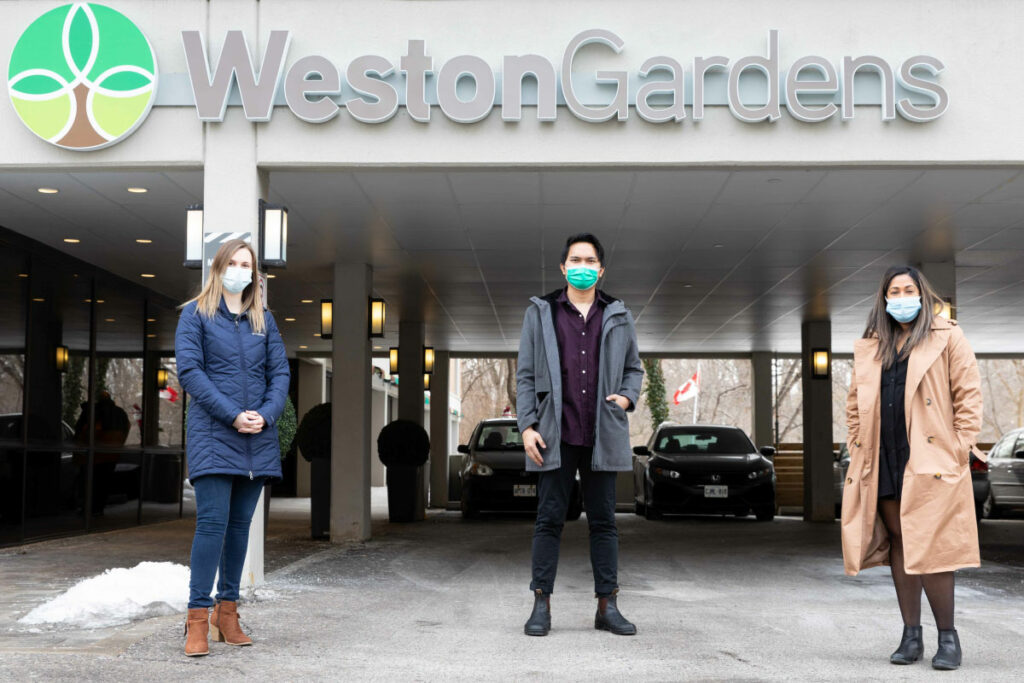
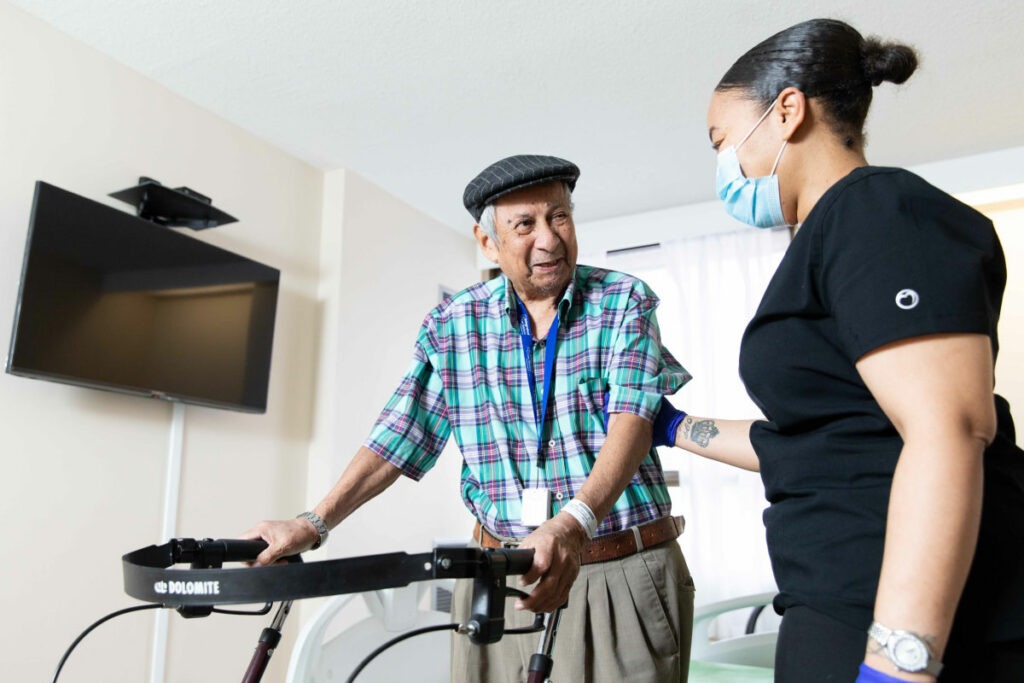
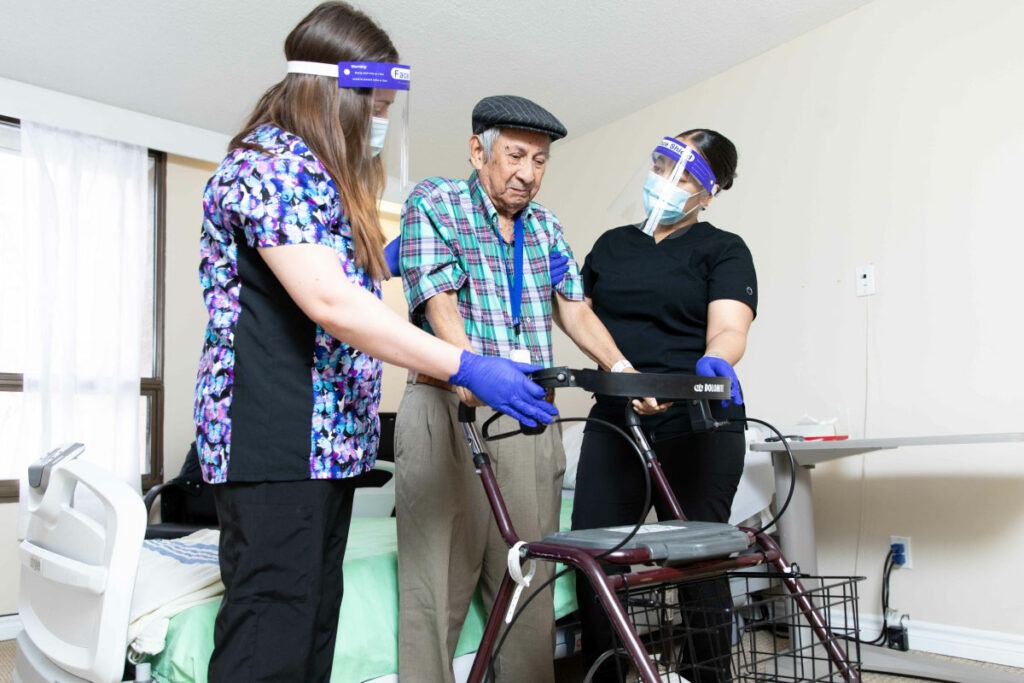
Transitional care beds like these are critical to relieve capacity pressures at hospitals, and ensure that patients are receiving the right care in the right place. Without transitional care beds, patients may end up waiting for a very long time in a hospital setting, which is not ideal for the patient, said Melissa Morey-Hollis, Unity Health Toronto vice-president of clinical programs.
Morey-Hollis said that Providence’s strong relationship with Bayshore – which first started in 2019 – helped the teams open the beds within a tight two-week timeframe. Each organization capitalized on their respective strengths to get the job done, she explained.
“Providence’s procurement, contracts and clinical team were amazing at ensuring we could support our Bayshore colleagues over the two weeks, removing barriers and ensuring timely delivery of beds. The Bayshore team mobilized to find staffing and create an admissions process to the unit that was expedited and user-friendly, while setting up the unit. Our teams work exceptionally well together,” she said.
Karen Fisher, director of community partnerships at Bayshore HealthCare, said that having successfully worked together in the past made the whole project easier.
“We have a strong working relationship and have built trust, which allowed us to be nimble and honest about what was possible and what was not,” she said.
The new beds are open to patients from all seven acute care hospitals in the Toronto region, with Bayshore staff overseeing patient care.
‘One bed is one patient’
From December through February, Providence added 14 surge beds to its units and was able to support the transfer of over 300 patients from across Unity Health Toronto, nearby hospitals, and from as far away as Southlake Health Centre in Newmarket. The patients were moved at the direction of the Greater Toronto Area Incident Management System (GTA IMS), a temporary structure that allowed administrators to manage hospital bed capacity at a system level, and through Unity Health’s internal processes.
Providence had the task of taking on extra patients while also contending with staffing shortages, as employees were contracting the highly-contagious Omicron variant in the community and couldn’t come to work due to safety protocols.
To deal with the rapidly-changing environment, Providence staff stayed flexible and open-minded, said Lori Brady, senior clinical program director of seniors’ health and ambulatory care. Everyone pitched in, from the staffing team members that worked to find agency nurses to fill coverage gaps, to staff who were redeployed to new, temporary positions, she said.
Some of these redeployed positions included patient and family liaison roles, where staff would field non-clinical questions from patients’ families and loved ones. These roles played a large part in allowing Providence to expand capacity, Brady said.
“It was someone being there to field a call from a family member and offer an update such as, ‘Your mom ate today, and she’s doing well.’ The staff on the units were so busy, they didn’t necessarily have the time to consistently respond to those pro-active check-in calls.”
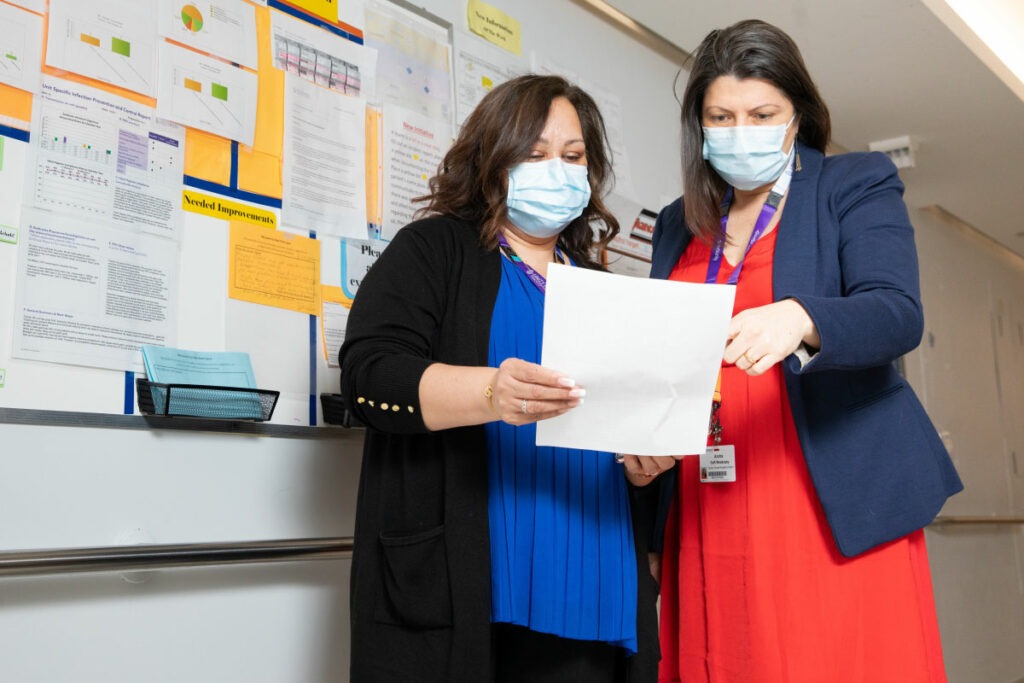
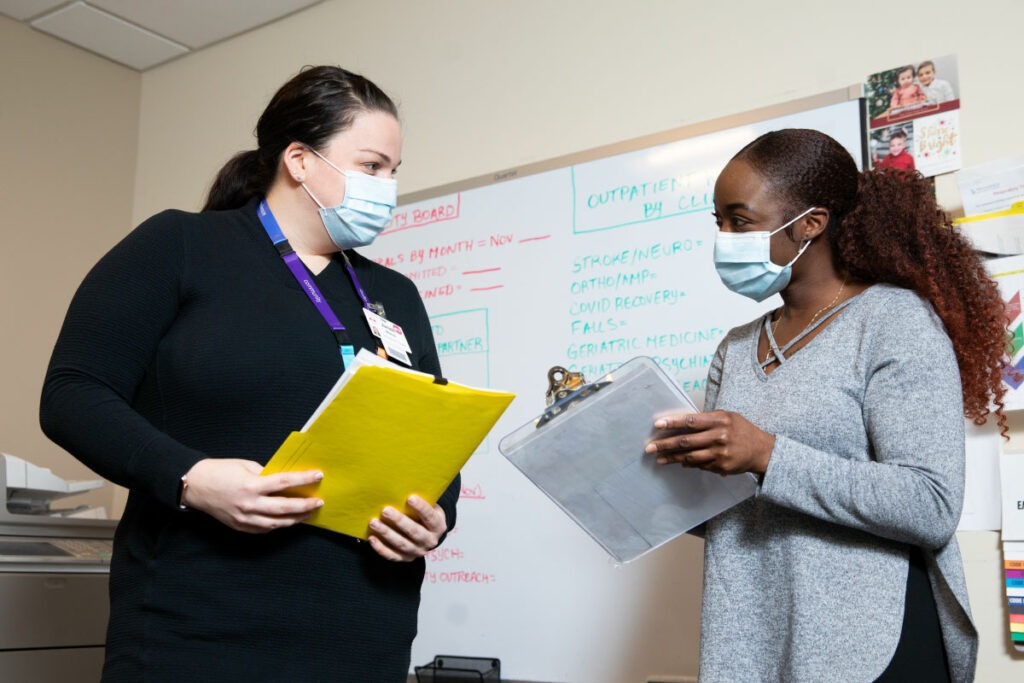
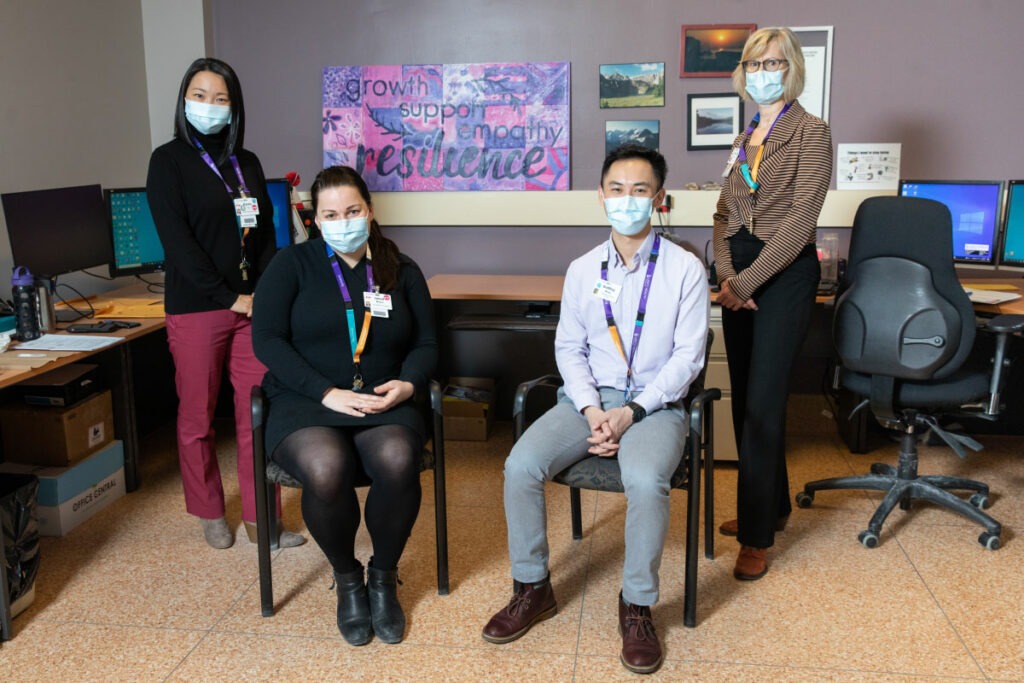
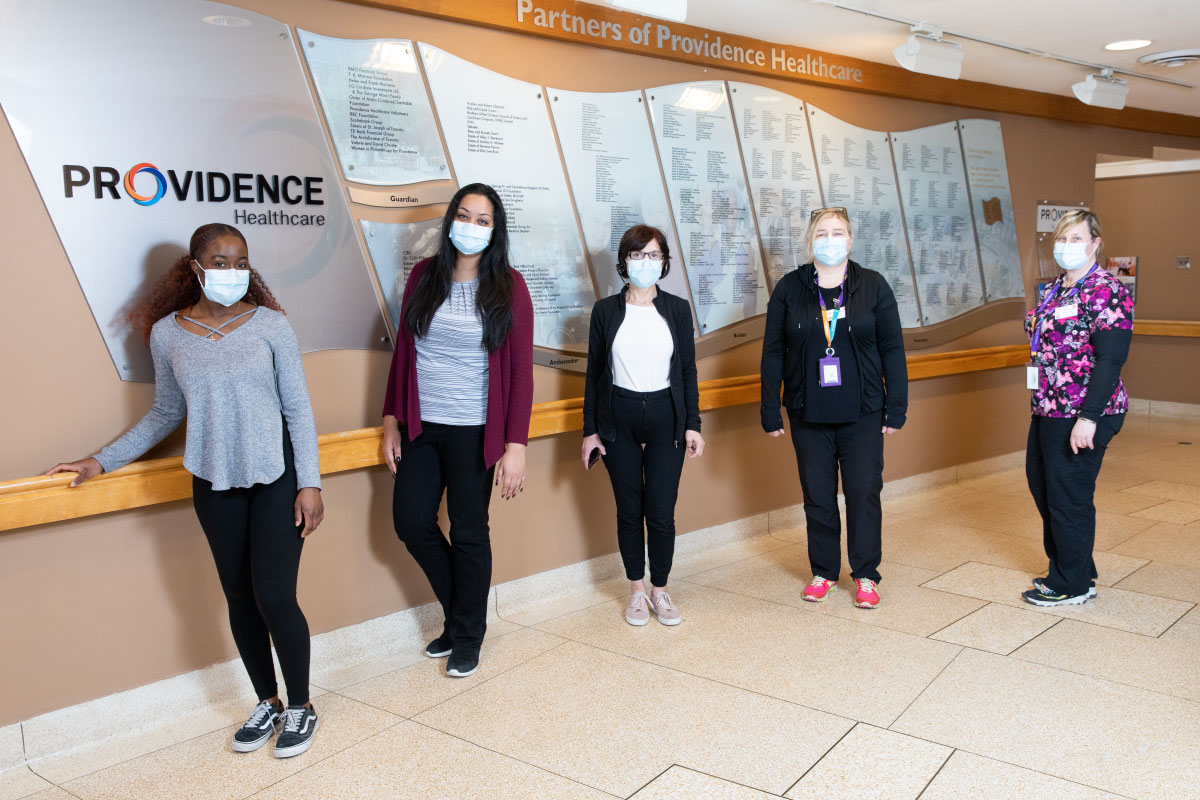
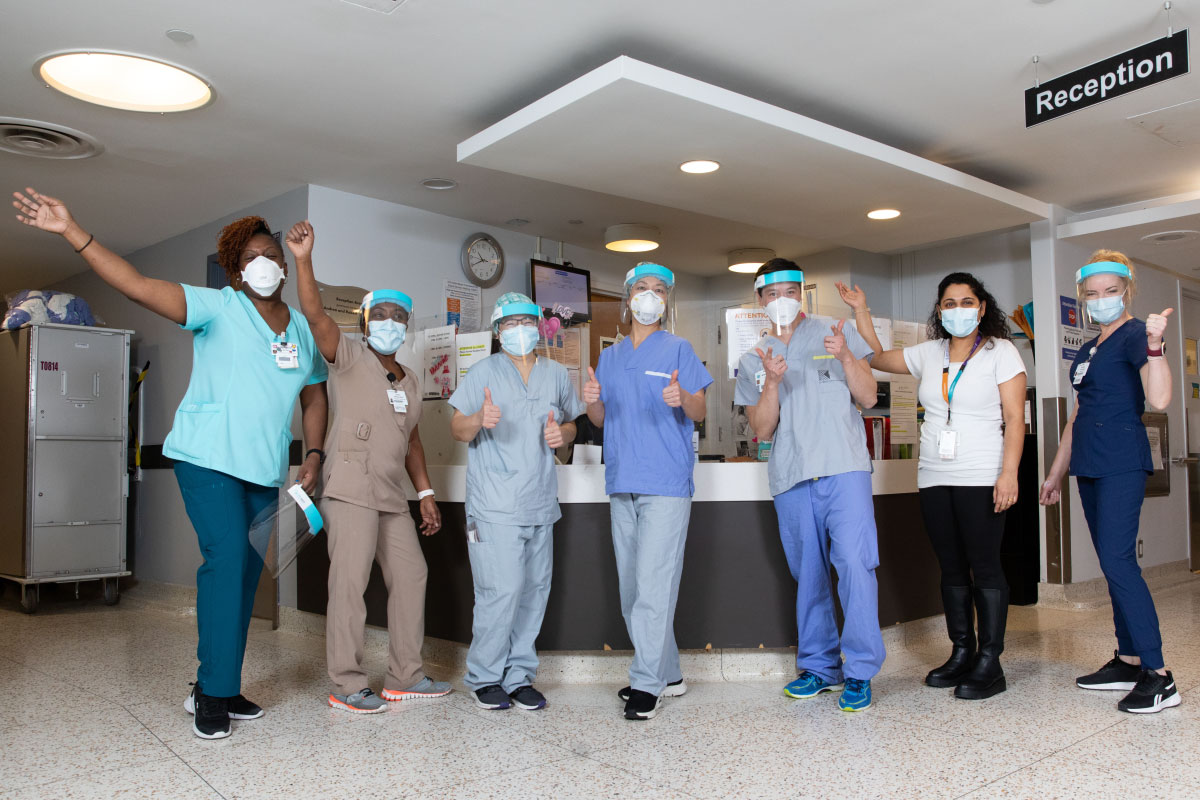
The Patient Flow, Patient Admitting teams and the Orthopedic and Amputee Rehabilitation Unit are pictured. These teams were among the many at Providence Healthcare that stepped up to help during the Omicron wave. The Orthopedic and Amputee Rehabilitation Unit served as the COVID-19 POD throughout Omicron.
It also helped that Providence is part of the larger Unity Health Toronto network, which allows for a better understanding of what acute care hospitals are facing and where opportunities exist to create capacity, said Andra Duff-Woskosky, senior clinical program director of rehabilitation and palliative care.
“Sometimes in post-acute care we can stay in our post-acute bubble, but it really helps to broaden the view, so you’re looking at the whole system and understanding how we can play a part,” she said.
Providence Healthcare has been able to contribute in impactful ways during the various waves, said Brady. “All rehab and post-acute sites have a role to play. One bed is one patient – multiply that and it’s significant.”
By: Marlene Leung and photos by Katie Cooper
